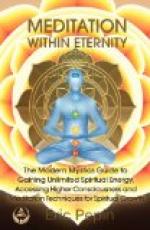“Selfless, he sought to gather no crowds of idle admiring disciples about him, but followed what his conscience dictated. He listened not to the counsel of his relatives and friends, who thought he had gone mad; and he bore in patience the well-meant but harsh rebukes of his second wife. After a long mental struggle, the agonies of which he has recorded in heart-rending words, now entreating God in the tenderest of terms, now resigning himself to despair, now appealing with the petulance of a pet child for what he deemed his birthright, now apologizing in all humility for thus taking liberties with his Mother-God, he succeeded at last in gaining a restful place of beatitude—a state in which he merged his soul in the universal soul,”—that is, Illumination, or cosmic consciousness.
Sadasiva Brahman, one of the great Siddhas, and a comparatively modern sage of India, left a Sanskrit poem called Atmavidyavilasa, which gives a comprehensive description of the experience and the effects of Illumination, as for example:
“The sage whose mind by the grace of his blessed Guru is merged in his own true nature (Existence, Intelligence, and Bliss Absolute), that great Illumined one, wise, with all egotism suppressed, and extremely delighted within himself, sports in joy.”
“He who is himself alone, who has known the secret of bliss, who has firmly embraced peace, who is magnanimous and whose feelings other than those of the atman, have been allayed, that person sports on his pleasant couch of self-bliss.”
“The pure moon of the prince of recluses, who is fit to be worshipped by gods and whose moonlight of intelligence that dispels the darkness of ignorance causes the lily of the earth to blossom, shines forth in the abode of the all-pervading Essence of Light.”
The above stanzas represent a more impersonal idea of the bliss of attainment than those of many others who have experienced Illumination, but they emphasize the same point that we find throughout all writings of the Illuminati, namely, the realization of the kingdom within, rather than without, and the necessity of selflessness—meaning the subjugation of the lesser self, the mental, to the soul.
We come now to a consideration of the life and character of the Lord Buddha, whose influence is still stronger in all parts of the world than that of any other person who has ever taught the precepts of attainment.
In Japan, for example, Buddhism, in its various branches, or interpretations, is the religion of the vast majority and even where Shintoism is the method of worship, the influence of Buddhism may be seen. So too, we find in Japan, a form of Buddhism, which shows evidences of the influence of Shintoism, but I think it may be admitted that Japan, above all other countries, represents to-day, the religion of Buddhism.
Buddhism has been called the “religion of enlightenment,” but the term “illumination” as it is used to describe the attainment of cosmic consciousness, is what is meant, rather than the purely intellectual quality which we are accustomed to think of as enlightenment.




